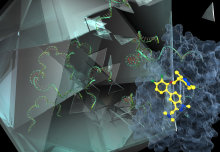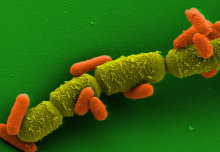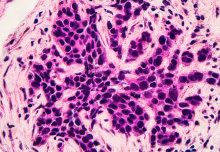

Congratulations Anna!
Dr Anna Barnard awarded prestigious Sir Henry Dale fellowship
Congratulations Anna!



Dr Anna Barnard awarded prestigious Sir Henry Dale fellowship
Congratulations Anna!


Expert to help improve drugs for patients and environment with Academy Chair
Professor Amparo Galindo has been named Imperial’s Lilly/Royal Academy of Engineering Research Chair in Pharmaceutical Molecular Systems.


Feature
Breakthrough drug shows early promise for multiple myeloma
A small clinical trial has shown that a new drug has promise for targeting tumours in patients with an aggressive type of blood cancer.


Feature
What happens when our cells stop cleaning up after themselves?
A cell needs to get rid of its waste proteins effectively in order to function – but what happens to our bodily tissue when this system breaks down?


Big data approach to drug discovery leads to new epilepsy target
A newly-developed computational framework for drug discovery has been used to identify a therapeutic target for epilepsy.


WHO World No Tobacco Day: why the key to quitting smoking could lie in our guts
A team of researchers at Imperial College London is investigating whether gut hormones could play a vital role in helping people to quit smoking.
 1
1


Molecule that acts on human cells might provide hope for irresistible cold cure
Researchers have lab-tested a molecule that can combat the common cold virus by preventing it from hijacking human cells.
 6
6


Tuneable genetic ‘clocks’ might lead to improved biotech strategies
Imperial scientists have worked out how to fine-tune cellular clocks, which might lead to optimised production of drugs, biofuels and other chemicals.
 1
1


Revealing the hidden biotech potential of unexplored organisms
Imperial researchers have developed a new, “cell-free” approach to investigating previously unexplored bacteria for biotechnology applications.


New class of drugs could help tackle treatment-resistant cancers
Researchers have discovered a new class of drug that has the potential to help cancer patients who no longer respond to existing therapies.